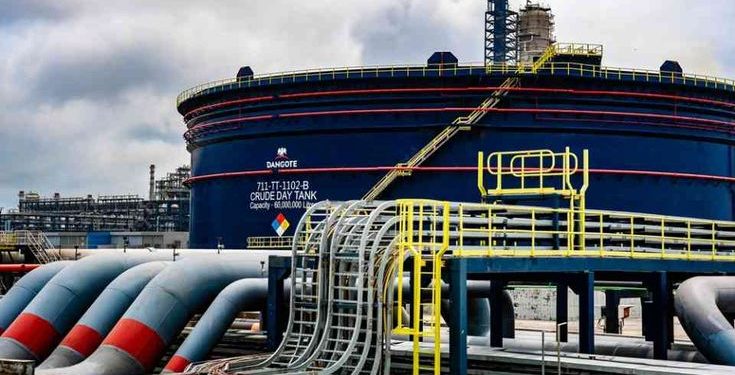The Dangote Petroleum Refinery and Petrochemicals has entered a storm of controversy following its recent decision to dismiss a number of Nigerian workers. The move, which management describes as a targeted restructuring, comes in the middle of escalating tensions over unionisation and allegations of sabotage threatening the safety and operations of the multi-billion-dollar 650,000 barrels per day refinery.
Staff dismissal sparks outrage
According to internal communications, employees affected by the restructuring were instructed to surrender company property and complete exit clearance processes. The finance department has been tasked with calculating entitlements and benefits due to those dismissed. Management insists that the action is not a mass layoff but a carefully selected adjustment to secure refinery operations.
Union leaders strongly disagree. Representatives of the Petroleum and Natural Gas Senior Staff Association of Nigeria (PENGASSAN) argue that the dismissals were a direct response to the decision by many employees to formally join the union. They allege that nearly 90 percent of those dismissed had signed up with the union within 24 hours before the terminations, suggesting retaliation for union activity rather than restructuring.
Sabotage claims fuel tensions
Management of the Dangote Refinery has defended the decision, pointing to repeated cases of alleged sabotage. Executives claim that unsafe activities within the facility threatened refinery operations, making swift action necessary to safeguard both infrastructure and personnel. However, critics argue that the timing of the dismissals raises questions about whether sabotage allegations are being used as a cover to suppress unionisation.
Unionisation at the heart of the dispute
The right of workers to unionise has been a contentious issue between Dangote Refinery and labour leaders. Earlier in September 2025, a Memorandum of Understanding was signed after federal government intervention affirming the constitutional right of refinery staff to join unions. Within days, however, PENGASSAN accused the company of failing to honour the agreement. The union claimed that workers were being intimidated, while management denied these allegations.
The dispute has since widened, with student groups such as the National Association of Nigerian Students warning against sabotage of the refinery. Analysts remain divided, with some voices supporting union demands while others argue that the company must resist external pressure to maintain operational stability.
Broader implications for Nigeria’s oil industry
The Dangote Refinery is widely seen as a strategic asset for Nigeria and the African energy market. Any disruption in its operations carries serious economic implications, particularly at a time when the gasoline production unit is already shut down for maintenance. Prolonged disputes over labour rights and unionisation could undermine investor confidence, affect supply stability, and damage Nigeria’s reputation as a hub for large-scale industrial projects.
Labour rights advocates stress that Nigerian law guarantees the freedom of association, including the right to join unions. They warn that attempts to sideline workers could trigger legal challenges and industrial court rulings. On the other hand, Dangote Refinery insists that operational safety and security must remain the top priority.
What remains uncertain
Key questions remain unanswered. The exact number of staff dismissed has not been disclosed. The evidence supporting sabotage allegations has not been made public. It is also unclear whether the federal government will intervene directly, whether dismissed workers will be reinstated, or whether the refinery will face additional legal or operational challenges.
Conclusion
The Dangote Refinery labour dispute highlights the delicate balance between corporate control, worker rights, and national economic interests. The company’s decision to fire staff during a unionisation drive has sparked outrage, intensified scrutiny, and raised concerns about transparency. As one of Africa’s most ambitious industrial projects, the Dangote Refinery is under pressure to resolve these disputes in a way that ensures both stability and fairness. The coming weeks will be critical in determining whether the controversy escalates or whether dialogue and negotiation prevail.























































